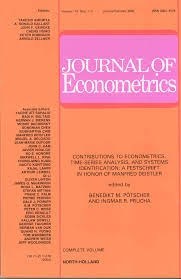
Bos, C., Bauwens, L., \van Dijk\, H.K. and \van Oest\, R.D. (2004). Adaptive Radial-based Direction Sampling: Some Flexible and Robust Monte Carlo Integration Methods Journal of Econometrics, 123(2):201--225.
-
Affiliated authors
-
Publication year2004
-
JournalJournal of Econometrics
Adaptive radial-based direction sampling (ARDS) algorithms are specified for Bayesian analysis of models with non-elliptical, possibly, multimodal target distributions. A key step is a radial-based transformation to directions and distances. After the transformation a Metropolis-Hastings method or, alternatively, an importance sampling method is applied to evaluate generated directions. Next, distances are generated from the exact target distribution. An adaptive procedure is applied to update the initial location and covariance matrix in order to sample directions in an efficient way. The ARDS algorithms are illustrated on a regression model with scale contamination and a mixture model for economic growth of the USA. {\textcopyright} 2003 Elsevier B.V. All rights reserved.